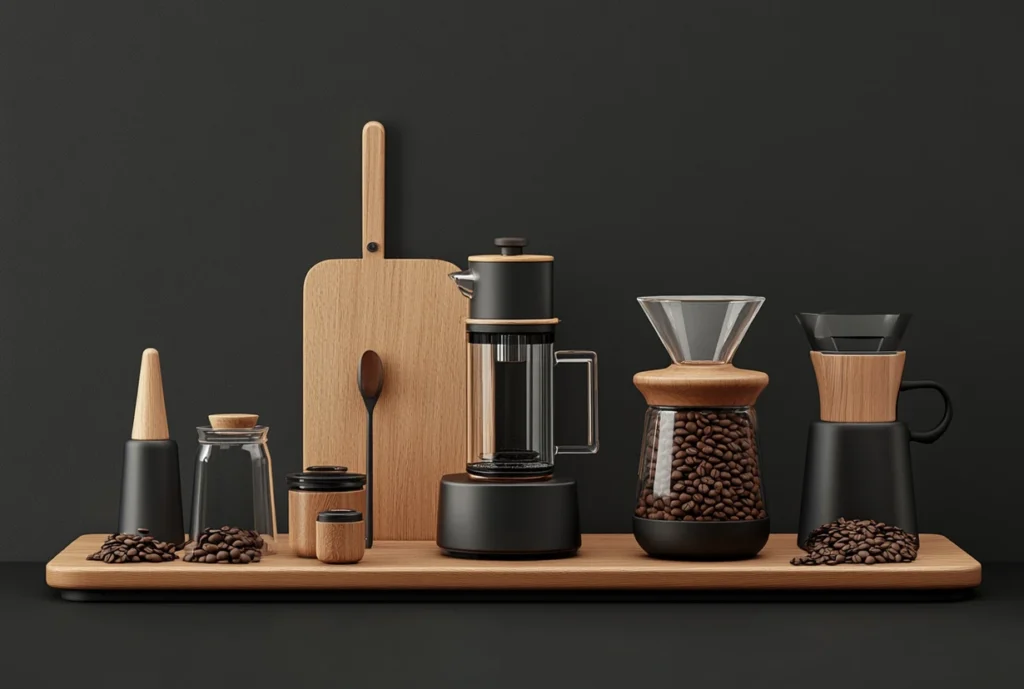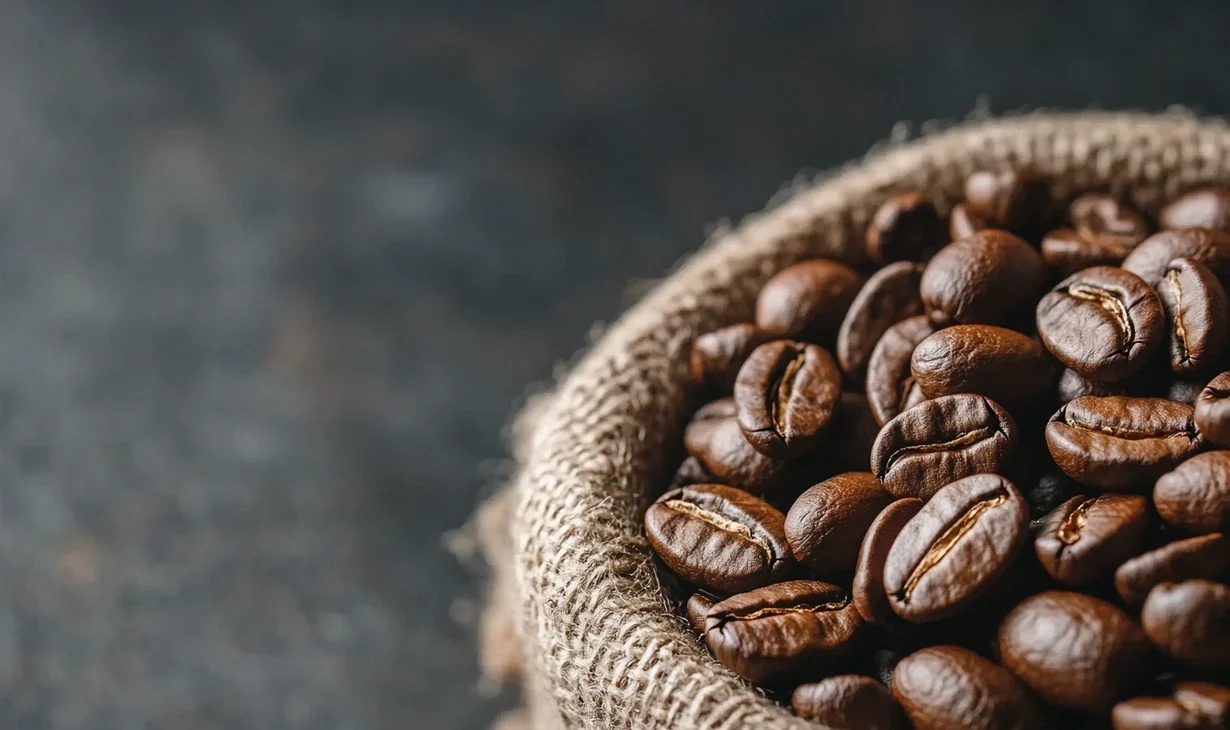Monkey Coffee is one of the most fascinating and rare types of coffee in the world. Known for its natural production process involving the help of monkeys, this exotic brew offers a flavor and experience unlike any other. Let’s explore the story behind this extraordinary coffee and what makes it so special.
Monkey Coffee is no ordinary brew—it’s a blend of nature’s creativity and humans’ appreciation for unique flavors. This rare coffee gets its name from the fascinating role monkeys play in its production, adding an element of intrigue to every sip.
With its distinct taste and limited availability, Monkey Coffee has become a sought-after delicacy for coffee lovers around the world. Whether you’re a coffee connoisseur or just curious about unique brews, this guide will take you on a journey into the origins, process, and flavors of this exceptional beverage.
What Is Monkey Coffee?
Monkey Coffee is a rare and exotic type of coffee that involves the unique contribution of monkeys during its production process. The monkeys naturally select and chew the ripest coffee cherries, spitting out the seeds, which are then collected, cleaned, and roasted to create a flavorful coffee with distinctive characteristics.
This coffee is celebrated for its ethical and sustainable production since it relies on the natural interaction between monkeys and coffee plants. Unlike other animal-assisted coffees, Monkey Coffee does not involve confinement or forced behavior, making it a guilt-free indulgence for coffee enthusiasts.
The Unique Role of Monkeys in Coffee Production

Monkeys play a fascinating role in creating this coffee. These wild animals instinctively pick the ripest cherries from coffee plants as part of their feeding habits. After chewing the fruit and spitting out the seeds, the beans undergo a natural fermentation process in the monkey’s mouth, enhancing their flavor profile.
This process adds complexity to the coffee, creating a smooth and fruity taste with hints of natural sweetness. The interaction between the monkeys and the coffee plants is entirely natural, which contributes to the ethical appeal of this coffee.
The Origins of Monkey Coffee
Monkey Coffee is believed to have originated in coffee-growing regions where monkeys and coffee plants coexist. In parts of India and Southeast Asia, local farmers noticed that monkeys were drawn to the ripest coffee cherries. Over time, they discovered that the partially eaten seeds left behind produced coffee with a unique and appealing flavor.
These regions, rich in biodiversity and lush vegetation, provide the perfect setting for the production of Monkey Coffee. The rarity of this coffee stems from the small scale of production and the dependency on natural environments where monkeys and coffee plants thrive together.
What Makes Monkey Coffee So Special?
The production process of Monkey Coffee is entirely different from traditional methods, which makes it stand out in the coffee world. Here’s why:
- Natural Fermentation: The partial fermentation that occurs during the chewing process adds unique flavor notes, such as fruity and sweet undertones.
- Limited Availability: Since the process depends on the behavior of wild monkeys, the production is small-scale, making this coffee a rare delicacy.
- Ethical Sourcing: The process occurs without harm to the monkeys, aligning with sustainable and ethical farming practices.
These factors combine to make Monkey Coffee a sought-after brew for those looking to explore unique coffee experiences.
How Is Monkey Coffee Made?
The creation of Monkey Coffee is a fascinating process that involves several unique steps:
- Monkeys Select the Ripest Cherries
Monkeys instinctively pick the ripest and juiciest coffee cherries from the plants. Their natural preference for quality ensures only the best cherries are used in the process. - Monkeys Chew the Cherries
After selecting the cherries, monkeys chew on the fruit, consuming the pulp and spitting out the seeds. This chewing initiates a natural fermentation process that enhances the beans’ flavor. - Farmers Collect the Beans
Farmers carefully gather the chewed seeds from the ground or nearby areas. This part of the process requires attention to detail to ensure no bean is wasted. - Cleaning the Coffee Beans
The collected beans are thoroughly cleaned to remove any residue, ensuring they are hygienic and ready for further processing. - Drying and Roasting
After cleaning, the beans are sun-dried or air-dried to lock in their unique flavors. Expert roasters then roast the beans to perfection, enhancing their natural sweetness and fruity undertones.
Ethical and Sustainable Practices
Producers of Monkey Coffee follow ethical and environmentally responsible practices, such as:
- Respecting Wildlife: Farmers do not interfere with the monkeys or their natural habitats. The process remains completely natural and non-invasive.
- Eco-Friendly Farming: Many farms avoid using harmful chemicals and pesticides, preserving the health of the environment and ensuring a pure product.
- Sustainability Focus: Coffee plants are cultivated with long-term sustainability in mind, promoting biodiversity and protecting local ecosystems.
The Flavor Profile of Monkey Coffee
Monkey Coffee delivers a distinct and luxurious flavor. Here’s what makes its taste special:
- Smooth and Sweet: The natural fermentation creates a rich, velvety texture with a hint of sweetness.
- Fruity Notes: Subtle hints of tropical fruits, like mango or papaya, give this coffee its refreshing edge.
- Balanced Acidity: The coffee achieves a perfect balance, offering a vibrant yet smooth finish.
For coffee lovers seeking a one-of-a-kind experience, Monkey Coffee stands out as an exceptional choice.
Where to Buy Monkey Coffee

Finding authentic Monkey Coffee can feel like a treasure hunt because of its rarity. Here are some trusted sources and tips to help you locate this unique coffee:
| Source | Details | Example/Notes |
|---|---|---|
| Specialty Coffee Shops | High-end coffee shops often stock Monkey Coffee for enthusiasts. | Visit local or boutique stores for small-batch options. |
| Online Retailers | Several websites sell authentic Monkey Coffee directly to consumers. | Look for well-reviewed specialty coffee websites or subscription boxes. |
| Coffee Farms | Farms that produce Monkey Coffee may offer direct sales for freshness. | Check if farms in Southeast Asia or India ship internationally. |
| Luxury Markets | Gourmet or luxury food markets sometimes include Monkey Coffee as part of their premium offerings. | Look for stores specializing in rare foods and beverages. |
Tips to Recognize Authentic Monkey Coffee
Not all Monkey Coffee sold in the market stays true to its name. Follow these tips to ensure you buy genuine beans:
- Research the Brand: Choose brands that provide details about the origin, farm, and production process of their Monkey Coffee.
- Check Reviews: Look for customer feedback to confirm the quality and authenticity of the product.
- Inspect the Price: Authentic Monkey Coffee often comes at a premium price due to its rarity. Be cautious of suspiciously cheap options.
- Look for Certifications: Trustworthy sellers often include certifications or proof of origin to validate their products.
- Buy in Small Quantities: Start with a small purchase to sample the coffee and ensure its quality matches your expectations.
By sourcing Monkey Coffee wisely, you can enjoy its authentic flavors and support sustainable practices.
How to Brew This Unique Coffee
Brewing this rare coffee requires care to highlight its exceptional flavors. Here are the steps to prepare a perfect cup:
- Choose Your Brewing Method
- Pour-over: Enhances the delicate fruity notes.
- French Press: Brings out a fuller body and richness.
- Espresso Machine: Creates a concentrated shot with vibrant flavors.
- Grind the Beans Fresh
Use freshly ground beans for maximum aroma and taste. A medium to coarse grind works best for most brewing methods. - Measure the Right Coffee-to-Water Ratio
Aim for a ratio of 1:15 (one gram of coffee for every 15 grams of water) to achieve the ideal strength and balance. Adjust according to your preference. - Use Filtered Water
Clean, filtered water at the right temperature (around 195–205°F or 90–96°C) ensures the coffee’s flavors come through clearly. - Brew with Precision
Follow the brewing time specific to your method. For instance:- Pour-over: Brew for 3–4 minutes.
- French Press: Steep for 4 minutes before plunging.
- Enjoy Immediately
Serve your freshly brewed coffee in a pre-warmed cup to preserve its aroma and taste. Pair it with light snacks like pastries or fruit for an enhanced experience.
Best Food Pairings for This Coffee
The coffee’s complex and fruity profile pairs well with certain foods. Here are some ideas:
- Fruits: Fresh fruits like berries, mangoes, or oranges complement its tropical notes.
- Pastries: Buttery croissants, almond biscotti, or shortbread highlight its sweetness.
- Dark Chocolate: The bitterness of dark chocolate balances the coffee’s smoothness.
- Nuts: Roasted almonds or hazelnuts add a crunchy contrast to the coffee’s rich texture.
These pairings elevate the experience, making every sip more enjoyable.
FAQs About Monkey Coffee
Here are answers to some common questions about this fascinating coffee:
- What makes this coffee different from regular coffee?
This coffee undergoes a unique process where monkeys select and partially ferment the beans. This natural interaction enhances the flavor, resulting in a smooth, fruity, and naturally sweet brew that stands apart from standard coffee. - Is it safe to drink coffee made this way?
Absolutely! The beans are thoroughly cleaned and roasted at high temperatures, ensuring they are hygienic and safe for consumption. - Where does this coffee come from?
It originates in regions like India and Southeast Asia, where wild monkeys naturally interact with coffee plants in their habitat. - Why is it so rare?
Its rarity comes from the small-scale, natural production process. Monkeys only interact with a limited number of cherries, and farmers must carefully collect these beans, making it a labor-intensive and exclusive product. - How much does it cost?
Prices vary depending on the origin and quality but typically range from $50 to $100 per pound. Its scarcity and unique process justify the higher price tag. - Can I brew it at home?
Yes, you can brew it using methods like pour-over, French press, or espresso machines. Use high-quality equipment and follow the tips mentioned earlier to get the most out of its complex flavors.
Why You Should Try This Rare Coffee
This coffee offers a unique combination of flavor, rarity, and ethical production that makes it a must-try for any coffee lover. From its fruity notes to its smooth finish, every sip tells a story of nature’s creativity.
If you’re looking for something beyond the ordinary, this exotic brew promises to take your coffee experience to the next level. Whether you savor it alone or share it with friends, it’s a chance to indulge in something truly exceptional.
Looking for a non-coffee alternative? Try this Pumptini Mocktail—a refreshing and flavorful drink that’s perfect for any occasion!

